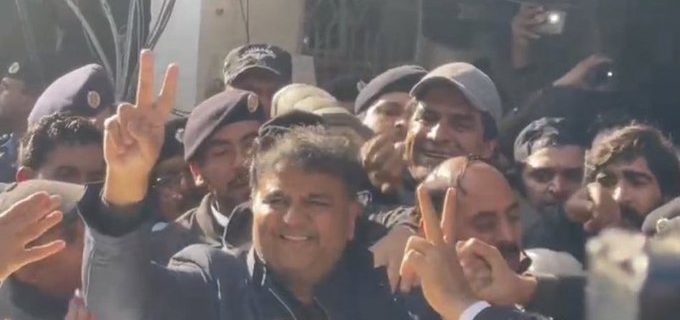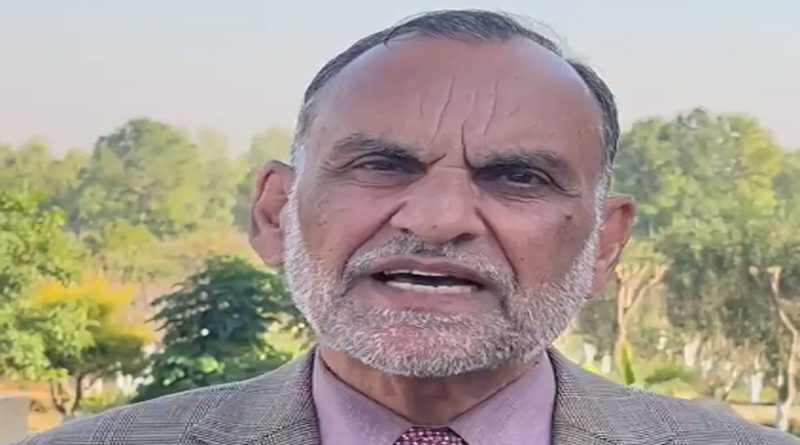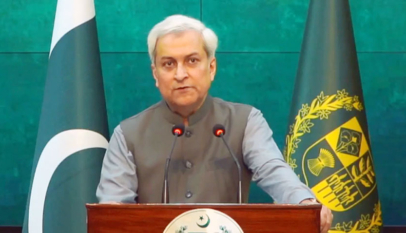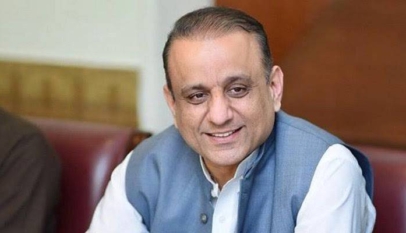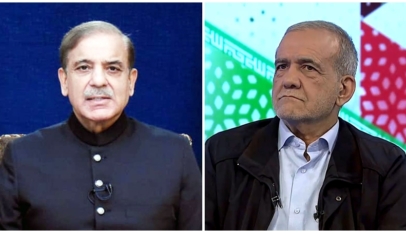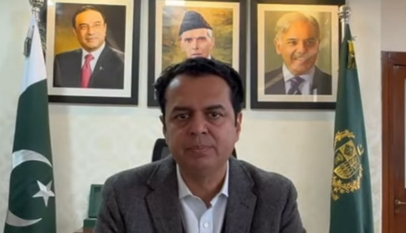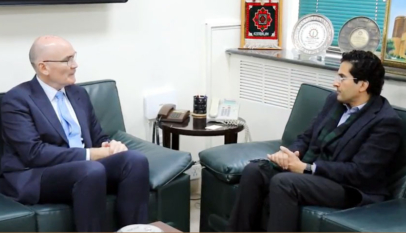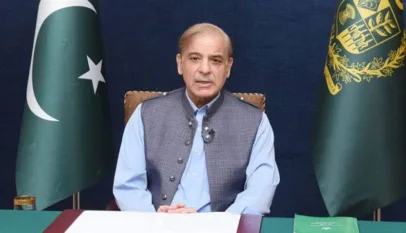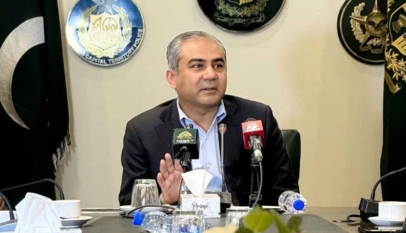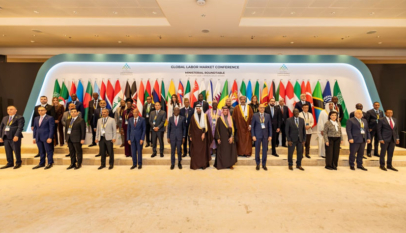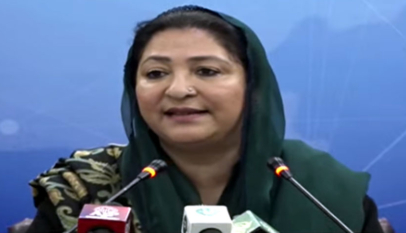An accountability court in Islamabad granted Pakistan Tehreek-e-Insaf (PTI) Chairman Imran Khan bail in the infamous £190 million settlement case till June 19 (20 days).
The PTI chairman had approached the accountability court after the Islamabad High Court (IHC) had directed him to seek bail in the settlement case from an accountability court.
The high court also granted the former prime minister bail in a separate case pertaining to the violation of Section 144 for 10 days.
The deposed premier, who had been ousted via a vote of no-confidence last year in April, had appeared before the high court amid strict security, to seek an interim bail in the graft case.
Earlier, he accompanied his wife Bushra Bibi to an accountability court present inside the federal judicial complex, for an extension of her bail in the €190 million settlement case. The court disposed of the former first lady’s plea and allowed her to leave.
Khan, along with his wife and other PTI leaders, is facing a NAB inquiry related to a settlement between the PTI government and a property tycoon, which reportedly caused a loss of 190 million pounds to the national exchequer.
At the outset of the hearing, the accountability court judge asked Khan’s counsel about IHC’s ruling.
The lawyer said the high court had granted his client three days to approach the accountability court to seek bail.
At this, the judge asked the lawyer whether he had filed the bail plea today.
The lawyer said as he had already prepared Khan’s bail plea, he decided to submit it today. “We also have to come back here on June 17.”
After hearing the arguments, the judge granted bail to the PTI chief till June 19 against surety bonds worth Rs500,000.
Earlier, an IHC division bench, comprising Justice Mian Gul Hassan Aurangzeb and Justice Saman Rafat Imtiaz, heard the PTI chief’s bail plea in the £190 million settlement case.
The lawyers requested the court to grant an extension in Khan’s bail till June 8. However, the court extended the bail for three days.
“Approach the relevant forum in three days,” the court told Khan. It then disposed of Khan’s bail plea.
The interim bail will become “ineffective” on Monday (June 9) in case the PTI chairman doesn’t follow the directives, the court added.
The IHC had on May 12 granted interim bail to the deposed prime minister in the multi-billion-pounds graft case till May 31.
Khan was arrested from the IHC premises by paramilitary forces on May 9, which triggered violent protests across the country.
However, he walked free after almost three-day incarceration after the Supreme Court deemed his arrest from the premises of the high court “illegal”.
After this, Justice Aurangzeb presided over the hearing of the plea seeking an extension in Khan’s bail in the case pertaining to the violation of Section 144.
The case had been registered at the Margalla Police Station in Islamabad.
Khan’s lawyer maintained that they did cannot go to F-8 kachehri court and wanted to secure bail from IHC.
“We want to give arguments in this court due to security concerns,” the lawyer added.
At this, an additional attorney general informed the court that the local court would shift to a new judicial complex from June 6
After this, the court extended Khan’s bail for 10 days and directed him to join investigations.
Earlier in the day, during the hearing at the accountability court, the NAB deputy prosecutor said that Bushra Bibi should cooperate with the ant-graft body whenever summoned for investigations.
“We respect and honour the women,” he said, adding that no notice had yet been issued to Bushra Bibi.
Meanwhile, the investigation officer informed the court that no warrant of arrest had been issued for Bushra Bibi as her “arrest was not needed”.
At this, the court disposed of her bail plea ineffective and allowed her to leave.
“In view of the statement of the IO, learned counsel for petitioner does not press the petition at hand. Hence, the petition filed for pre-arrest bail u/s 9(b) of the NAO, 1999 read with section 498 Cr.P.C is hereby disposed of accordingly. File be consigned to record room after its completion,” the written order issued by the court stated.




